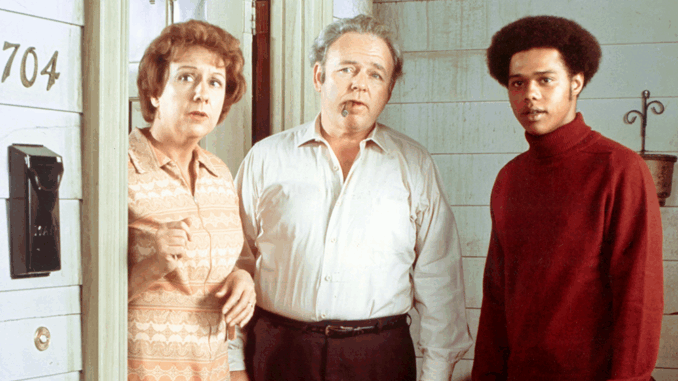
While the 1970s brought many TV hits, only All in the Family transformed American television and sparked real conversations about race, politics, and class. Discover how this sitcom became a cultural movement.
How All in the Family Redefined 1970s Television and Sparked a Cultural Revolution
The 1970s were a golden era for television, filled with iconic hits that drew millions of viewers each week. But among all the comedies and dramas that dominated the screen, one show stood out for more than just entertainment value. All in the Family, which debuted in 1971, didn’t just reflect society — it challenged it.
A Sitcom That Broke All the Rules
At a time when most shows avoided controversy, All in the Family tackled hot-button issues head-on. Led by the unforgettable Archie Bunker, the show confronted topics like racism, women’s rights, war, and generational conflict — all within the framework of a weekly sitcom.
Its bold, often uncomfortable honesty was unheard of in American living rooms. Yet, that very discomfort is what made the show revolutionary. It held a mirror up to the audience and dared them to confront their own beliefs.
Changing the TV Landscape
Before All in the Family, television largely existed in a safe, idealized world. Families were perfect, problems were simple, and laughs were easy. But this show changed all of that. It paved the way for other socially conscious series like Maude, The Jeffersons, and Good Times, many of which were direct spin-offs or influenced by its legacy.
Its creator, Norman Lear, saw television as a powerful tool for conversation, and All in the Family became a platform where comedy met conscience.
The Power of Archie Bunker
Archie Bunker became one of the most iconic — and controversial — characters in TV history. He was bigoted, loud, and deeply flawed, yet incredibly human. Through him, the show opened up difficult conversations in American households and beyond.
While some saw Archie as a caricature, others saw themselves or their relatives in him — making the character both relatable and uncomfortable. This duality was the genius of the show.
A Legacy That Still Resonates
More than 50 years later, All in the Family remains a benchmark for what television can do when it dares to reflect reality. Its influence is still felt in shows that aim to combine humor with cultural commentary, from The Simpsons to Black-ish.
In an age of reboots and reimaginings, All in the Family stands as a reminder of how powerful, raw, and brave storytelling can reshape not just entertainment — but society.
Final Thoughts
While many shows in the 1970s made us laugh, only All in the Family made us think — and talk. It wasn’t just a hit; it was a movement that redefined what television could be. A true game-changer, it proved that sitcoms could carry the weight of real-world issues while still delivering unforgettable characters and moments.